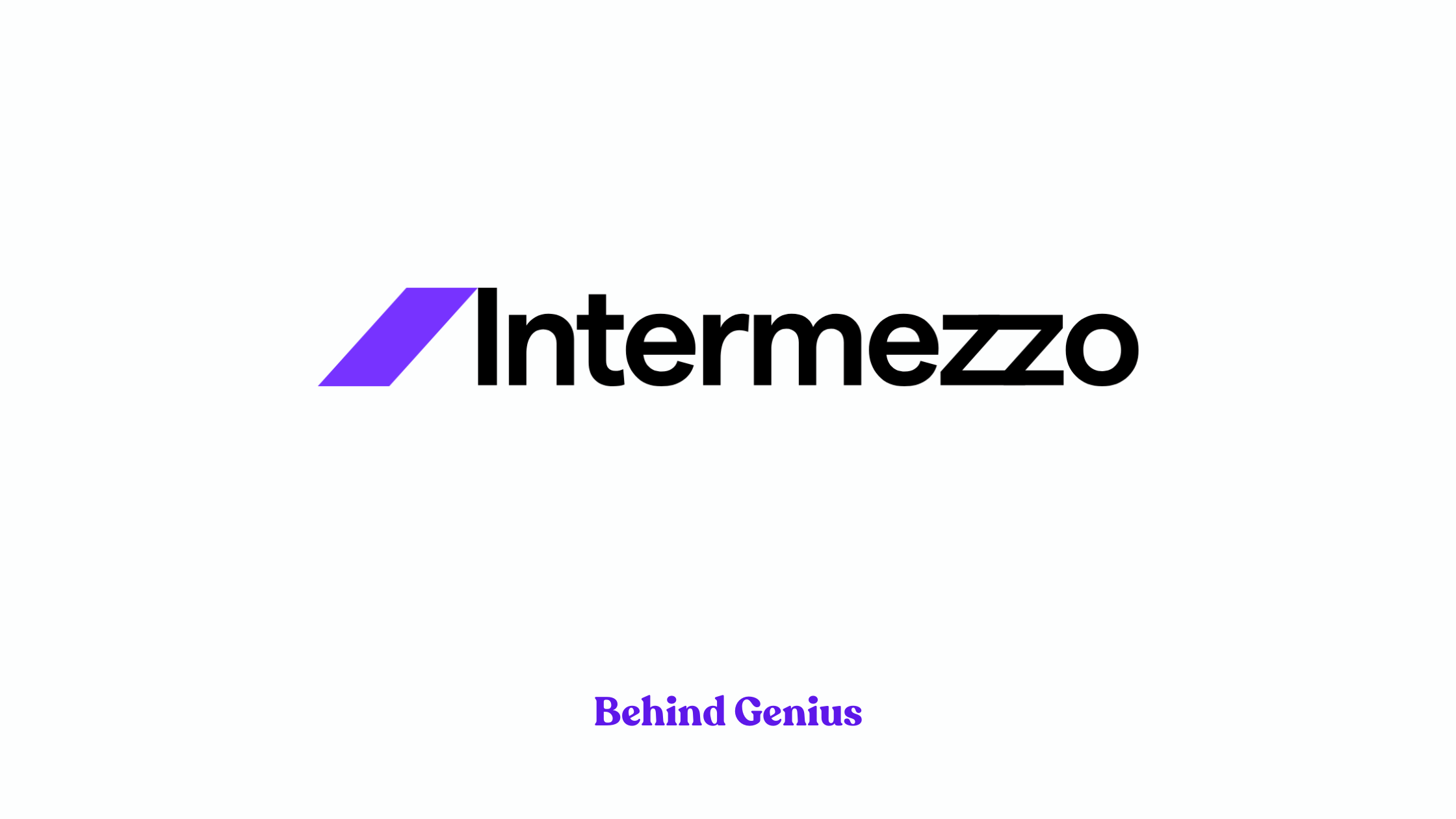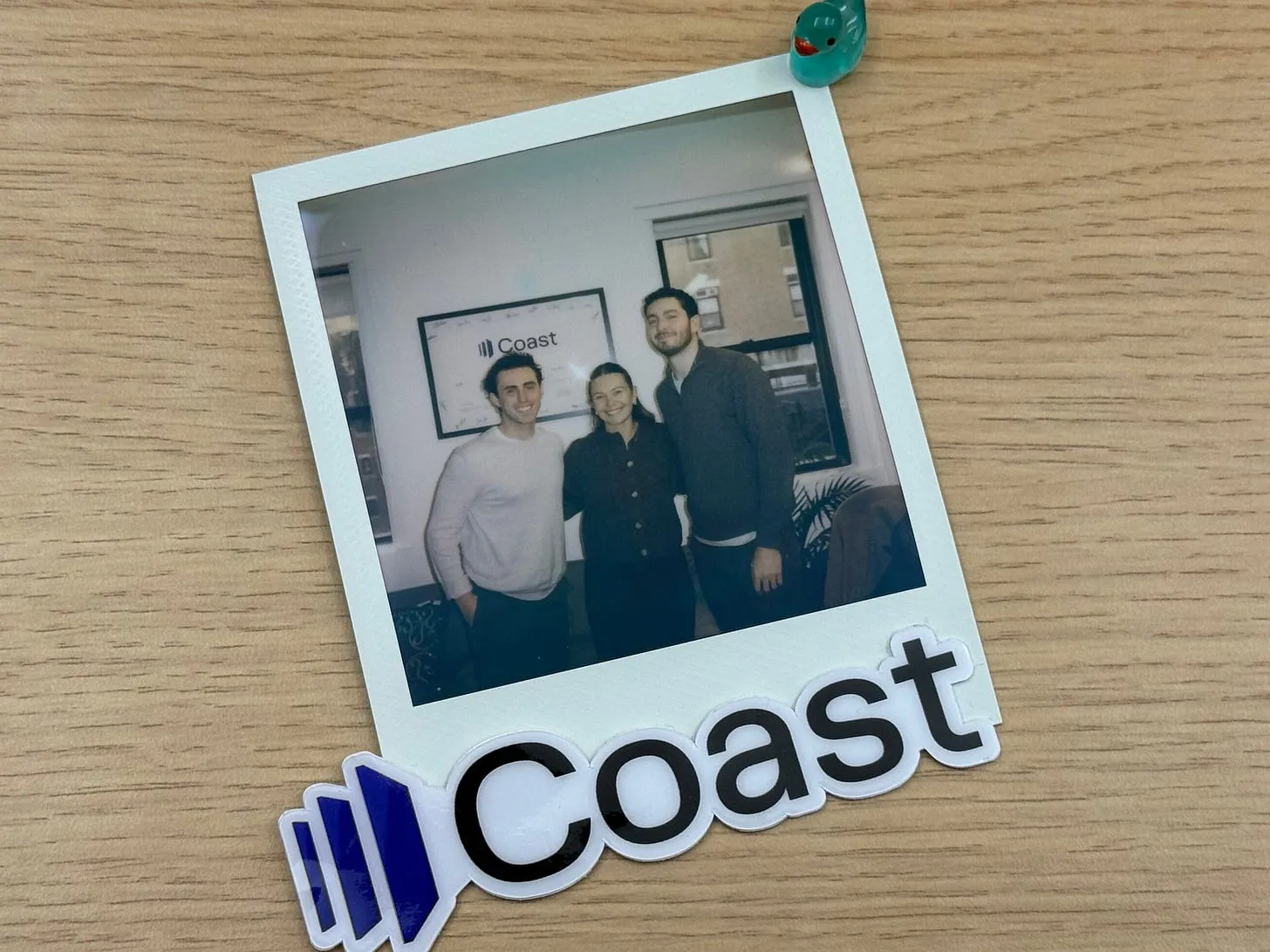Clipboard Companies

We are excited to introduce Behind Genius’s latest investment framework: 'clipboard companies.' This approach guided our investment in Coastal Carbon, a company that combines ocean intelligence with climate action in the often overlooked seaweed farming industry.
In this piece we’ll define the attributes of what we consider a clipboard company, share how we evaluate these companies, and an example: Coastal Carbon. By sharing our framework in public, we’re putting out a tuning fork to find additional great founders that resonate with our clipboard company framework.
Table of Contents
- What is a Clipboard Company?
- Definition of a clipboard company
- Competition within well-known verticals
- The opportunity for disruption in overlooked industries
- Case Study: Coastal Carbon
- The seaweed farming industry
- Challenges faced by seaweed farmers
- How Coastal Carbon is transforming the industry with technology
- Technology Symbiosis in Clipboard Companies
- The balance between human expertise and technology
- The role of AI-driven software in modernizing industries
- Why human knowledge is essential for success
- The Future of Clipboard Companies
- Broader implications across industries
- Opportunities in emerging markets
- How clipboard companies drive sustainable innovation
What is a Clipboard Company?
We coined the term 'clipboard company' to describe businesses that still rely on outdated, manual, or paper-based processes, such as using clipboards for daily tasks.
Many companies that are currently building within well-known verticals face fierce competition from well-funded incumbents, many startups, and big tech conglomerates. While large market sizes can support many billion dollar companies, investing in first-mover companies that are revamping antiquated spaces forms the basis for our “clipboard company” framework. While this may sound similar to vertical software, a very common software playbook, the main differences are:
- not a supersaturated space with fewer competitors, historically neglected by the technology industry
- building technology for a niche that can yield venture type returns when applied more broadly
- focus on enhancing and preserving the value of human expertise rather than eliminating it
Overlooked industries offer startups a unique opportunity to disrupt and modernize outdated, inefficient processes with innovative solutions. But while technology enables companies to scale and innovate, human knowledge remains vital in understanding and navigating complex traditional systems.

Clipboard companies are a subset of Vertical SaaS, which are software solutions designed for specific industries, addressing their unique needs with tailored technology. These companies often focus on optimizing workflows, improving efficiencies, and driving better results within a particular sector.
Clipboard Companies, as a subset, take this further by specifically targeting industries that are still using manual, outdated processes—think physical clipboards, pen-and-paper systems, or analog workflows. The goal of clipboard companies is to digitize and modernize these old-school industries through tailored software solutions, often enhanced with AI or automation.
In short, all clipboard companies are vertical SaaS because they provide industry-specific software solutions. However, not all vertical SaaS companies are clipboard companies, as vertical SaaS can also serve industries that are already somewhat modernized but still benefit from specialized software.
Users of this technology will replace their 'clipboards' with software, often enhanced with AI. This software simplifies tasks, improves efficiency, and can increase revenue and profitability. It may also enable companies to scale, expand their operations, or enter new markets.
Case Study: Coastal Carbon

In the case of our latest portfolio company, Coastal Carbon cofounder Thomas Storwick wanted to be a seaweed farmer after graduating with his masters in chemical engineering from UWaterloo. But after interviewing 250 seaweed farmers, he realized they all shared an enormous problem - they couldn’t see at scale what was going on underwater. He teamed up with cofounder Kelly Zheng, then working on her PhD in applied machine learning for satellite data at Waterloo to build Coastal Carbon.
Seaweed farming is a classic example of a 'clipboard' industry, one that still relies on outdated, manual processes. Despite its rapid growth and its ability to sequester carbon, the seaweed farming industry has been slow to adopt modern technology, making it difficult to efficiently analyze and manage.
Today, hundreds and thousands of seaweed farmers use an actual human diver equipped with a patented underwater clipboard to attempt to accurately measure their harvest. In addition to being dangerous for the diver, the stakes for the business are extremely high - mistiming or miscalculating the harvest by even a week can render up to half the crop as unusable, and would therefore be deemed a total loss.
For years, the seaweed farming industry has been neglected by technology companies and climate technologists, leaving a critical need for efficient, modern solutions. While Coastal Carbon developed technology to help seaweed farmers better predict their harvest & account for the carbon credits, their longer term vision expanded to building foundational models for the natural world.
By building a solution for a market that had been underserved by the technology world then evolving a broader vision for their technology, Coastal Carbon is well on its way to making a significant dent in the fight against climate change while growing rapidly.
Coastal Carbon’s success is just one example of how clipboard companies can revolutionize traditional industries, but the potential for this framework goes far beyond seaweed farming.
Technology Symbiosis
Understanding clipboard companies requires recognizing the essential concept of technology symbiosis - the seamless integration of technology with human expertise, where each enhances the other’s capabilities. In clipboard companies, the transformation from manual, outdated processes to technology-enabled systems is not just about replacing human labor with machines; it’s about creating a balanced, collaborative relationship between the two.
For these companies to succeed, it’s crucial that human expertise remains central—especially in industries where knowledge of traditional processes is deep-rooted. Technology acts as a powerful tool that enhances human capabilities, rather than eliminating the need for them.
For instance, in the case of seaweed farming and Coastal Carbon, the introduction of AI-driven analytics and remote monitoring doesn’t merely replace the diver’s clipboard; instead, it augments human decision-making by providing precise, real-time data. The farmer's expertise in assessing seaweed health is combined with technology’s ability to monitor vast underwater ecosystems with a level of detail and accuracy that humans alone couldn’t achieve. The AI system continuously learns and improves over time, further enhancing the decision-making process by delivering increasingly accurate data as the system grows.
In clipboard companies, this balance is essential because the industries they seek to modernize are often complex, with processes that require deep domain expertise. The introduction of technology must respect and build upon that knowledge. Without the insights of experienced humans to guide and refine the use of technology, there’s a risk of oversimplifying or missing key nuances in these industries.
Conversely, without the power of technology to automate and enhance processes, these companies may struggle to scale or innovate at the speed required to remain competitive. This symbiosis is what allows clipboard companies to unlock new efficiencies while preserving the valuable knowledge and experience that define their industries.
In the case of Coastal Carbon, this blend of human expertise and technology creates a more sustainable and efficient harvest process. It reduces the environmental impact and maximizes the farmers' yield. Perhaps most importantly, the trickle down effect can be observed: the integration of technology in such clipboard industries often has a cascading effect on the broader ecosystem.
The Future of Clipboard Companies
Looking beyond the immediate industry of focus, the concept of clipboard companies has broader implications for how we approach innovation in other underserved and technologically neglected sectors like logistics, healthcare, manufacturing, and many we have yet to explore.
In addition to seaweed farming, the clipboard company framework applies to a variety of industries where manual processes still dominate. Companies such as Samsara in IoT fleet management or Procore in construction software, exemplify this trend. These companies have successfully modernized outdated processes in industries previously on pen-and-paper systems.
Our clipboard company framework highlights the transformative potential of integrating modern technology with human expertise in traditionally overlooked industries. By unlocking new efficiencies while preserving valuable knowledge, clipboard companies not only disrupt outdated processes but also drive meaningful, sustainable innovation. As more sectors embrace this symbiotic approach, we see abundant opportunities for growth, making it essential to invest in companies that are leading this quiet revolution.
Our approach is about more than just tech-driven disruption. It's about supporting meaningful innovation that respects traditions of overlooked industries while guiding them toward a more sustainable and prosperous future.


